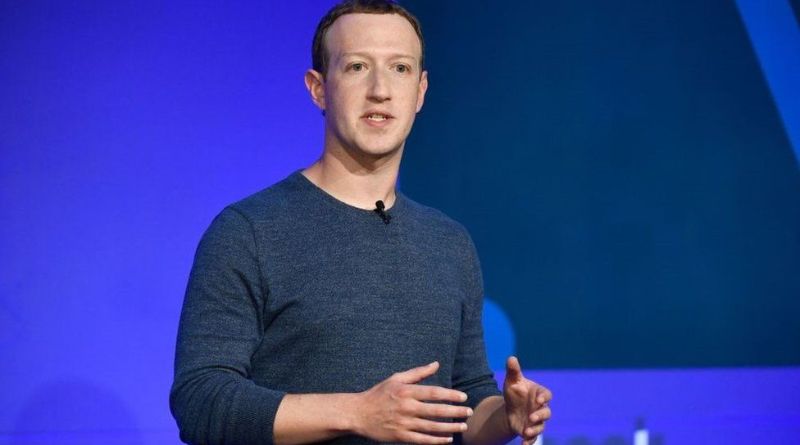Introduction
Of the 21st century one of the most influential tech entrepreneurs, Mark Zuckerberg is. Zuckerberg has been at the forefront of social media innovation and digital connectivity as the co-founder and CEO of Meta Platforms (formerly Facebook). To connect billions of people worldwide that has grown into a global empire that began as a college project in 2004. A concept he believes will define the future of digital interaction Zuckerberg has also become a key player in the development of virtual reality (VR) and the metaverse while Facebook remains his most well-known creation.
Early Life and Education
To a well-educated family in White Plains, New York, on May 14, 1984, Mark Elliot Zuckerberg was born. His mother, Karen, a psychiatrist and his father, Edward Zuckerberg, was a dentist. In computers and programming Zuckerberg showed a keen interest from a young age. Including a music player called Synapse, which used artificial intelligence to learn a user’s listening habits, he had already developed his own computer programs by the time he was in middle school.
Table of Contents
In New Hampshire, a prestigious prep school where he excelled in fencing and academics, Zuckerberg attended Phillips Exeter Academy. He went on to study at Harvard University, where he studied psychology and computer science his interest in computer science and technology deepened. Launched what would become Facebook Zuckerberg, along with his roommates Eduardo Saverin, Andrew McCollum, Dustin Moskovitz, and Chris Hughes it was at Harvard.
The Creation of Facebook
Initially a social networking platform exclusive to Harvard students in February 2004, Zuckerberg launched TheFacebook. To create profiles, connect with friends, and share personal information the site allowed users. The idea quickly gained popularity within the university, and within a few months, it expanded to other Ivy League schools, and then to universities across the United States and Canada.
Relocating to Palo Alto, California, to establish the company in 2004, Zuckerberg dropped out of Harvard to focus on Facebook full-time. Attracting millions of users in a short period the platform’s growth was meteoric. Including Peter Thiel, co-founder of PayPal, who provided crucial early funding as Facebook expanded, Zuckerberg attracted attention and investment from Silicon Valley venture capitalists.
After acquiring the domain name for $200,000 Facebook became Facebook.com in 2005. Allowing anyone over the age of 13 with a valid email address to join, the site was open to the public by 2006. To become the dominant social media platform this move helped Facebook surpass MySpace and other competitors.
Facebook’s Growth and Dominance
For connecting with friends Facebook became more than just a platform under Zuckerberg’s leadership. All of which became chief of modern social media the company introduced features such as the “Like” button, status updates, and a news feed. For sharing news, photos, and videos, as well as appealing with businesses, public figures, and brands as the user base grew, Facebook advanced into a platform.
Lifting $16 billion and making Zuckerberg a billionaire in 2012, Facebook went public with an opening public offering (IPO). Further stiffening its dominance in the social media and tech space, obtaining other popular platforms like Instagram (in 2012), WhatsApp (in 2014), and Oculus VR (in 2014) the company continued to grow aggressively .
Accomplishing it as one of the biggest social media networks globally as of 2024, Facebook, now part of Meta Platforms, brags over 2.8 billion monthly active users. Making Zuckerberg one of the most powerful figures in the digital world, Meta’s portfolio includes other major social media platforms, such as Instagram, WhatsApp, and the VR platform Oculus.
The Shift to Meta and the Metaverse Vision
Toward a future in which the company would focus on building the “metaverse”, as a social networking site signaling a shift away from its origins, by rebranding Facebook as Meta Platforms Zuckerberg made a bold move in 2021. Physically persistent virtual environments, created by the convergence of virtually enhanced physical reality, the metaverse is a collective virtual shared space. In more immersive ways than ever before engaging with digital experiences where people will interact with each other, work, socialize, Zuckerberg envisions the metaverse as the next big leap in digital communication.
Including the Oculus VR headset, are central to this vision Meta’s investments in virtual reality (VR) and augmented reality (AR) technologies. In the future of work, entertainment, and social interactions Zuckerberg believes that the metaverse will play a key role, to connect, collaborate, and experience the world offering new ways for people.
Including significant financial losses in its VR and AR divisions, concerns over privacy and data security, and skepticism from investors and users, Meta’s push toward the metaverse has faced challenges. Metaverse represents the future of the internet and digital interaction however, Zuckerberg remains steadfast in his belief.
Controversies and Criticism
Faced significant controversies and public scrutiny over the years by Mark Zuckerberg and Facebook (now Meta). For its handling of user data, privacy violations, and its role in spreading misinformation the company has been criticized. For targeted political ads by a political consulting firm in which it was revealed that the personal data of millions of Facebook users had been improperly accessed and in 2018 one of the most high-profile scandals was the Cambridge Analytica scandal. To congressional hearings and regulatory scrutiny this scandal led.
In amplifying hate speech, political polarization, and fake news on its platform Facebook has also been criticized for its role. Including improving content moderation and increasing transparency the company has made efforts to address these issues, but to curb the spread of harmful content Zuckerberg and his leadership have continued to face criticism for not doing enough.
While focusing on innovation and expansion, continues to steer the company through these challenges and Zuckerberg has remained the public face of Meta, despite the controversies.
Philanthropy and the Chan Zuckerberg Initiative
In 2015 a philanthropic organization founded, through the Chan Zuckerberg Initiative (CZI) , committed to giving away a significant portion of their wealth alongside his work at Meta, Mark Zuckerberg and his wife, Priscilla Chan. On areas such as education, science, health care, and criminal justice reform the initiative focuses. For diseases like cancer and Parkinson’s using technology and data science to find cures one of CZI’s notable projects is its work to advance personalized medicine.
Over the course of their lifetimes to charitable causes to donate 99% of their Facebook shares in 2015, Zuckerberg and Chan also pledged. For future generations to improve the world and create opportunities this commitment is part of their broader mission.
Legacy and Impact
To share information, and connect with others globally which has fundamentally changed the way people communicate, Mark Zuckerberg’s legacy is marked by his creation of Facebook. In shaping the social media landscape facebook has been instrumental, to political activism and social movements influencing everything from marketing and advertising.
As Meta ventures into the world of virtual reality and the metaverse however, Zuckerberg’s legacy is still evolving. To reshape the internet and how people interact online his vision for a more immersive digital future has the potential. To drive his work Zuckerberg’s ambition and willingness to take risks continue while the path forward may be fraught with challenges.
Conclusion
One of the world’s most influential tech companies is a story of vision, innovation, and persistence Mark Zuckerberg’s journey from a Harvard dorm room to building. For future generations as he seeks to redefine digital interaction in Zuckerberg’s career, its focus on the metaverse signals a new chapter and Facebook’s transformation into Meta. His impact on technology, business, and society is undeniable while his leadership has faced criticism. To shape the way we live, work, and connect in the years to come his influence will likely continue as Zuckerberg pushes toward the next frontier of the digital world.














Leave a Reply